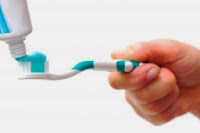This two-part article series provides important advice on preventing the oral diseases that lead to tooth loss and the need for new teeth.
Dental implants may offer NJ residents a sophisticated and comprehensive solution to missing teeth, but according to new teeth implants professionals in Rutherford, nothing beats the benefits of your own biological technology. “Healthy natural teeth are typically quite durable, and along with healthy gums, usually have very aesthetic look, so we always encourage patients to do their very best to keep them. Yes, we can provide great solutions should you ever lose one or more of your natural teeth, but with the right preventative care and daily maintenance, you should hopefully never need those solutions.”
In this two-part article series, these experts will be providing us with their top tips for preventing tooth loss.
Oral Hygiene: Keep it Clean

“Most Americans only brush their teeth for 38 seconds a day in total. You should be dedicating two whole minutes to scrubbing your teeth and tongue, making sure to spend 30 seconds per quadrant of the mouth. “We also encourage patients, especially those who have already lost teeth to gum disease, to brush three times a day, about 30 minutes after breakfast, lunch and supper.”
“The reason you should wait 30 minutes is because your mouth becomes quite acidic after eating. The low PH softens the dental enamel protecting your teeth, rendering it more vulnerable to erosion by the abrasive action of brushing. If you can’t wait and, for example, need to rush off to the office after breakfast, then rinse your mouth thoroughly with water before brushing.”
Floss, Floss, Floss
 Flossing is one of the most neglected, yet important oral hygiene habits. Most Americans do not floss daily as they should and a significant percentage never, ever does it. “Your teeth are three-dimensional and while the right brushing technique effectively cleans the front, back and top surfaces of the teeth, the contact points between them are being completely neglected,” explains a new teeth implants professional in Rutherford. “One of the most common sites for decay is in fact between the teeth and at the gum line. Flossing at nighttime before you go to bed at night is an essential step towards preventing the diseases that claim healthy teeth. It also an essential step in one’s recovery from gum disease.”
Flossing is one of the most neglected, yet important oral hygiene habits. Most Americans do not floss daily as they should and a significant percentage never, ever does it. “Your teeth are three-dimensional and while the right brushing technique effectively cleans the front, back and top surfaces of the teeth, the contact points between them are being completely neglected,” explains a new teeth implants professional in Rutherford. “One of the most common sites for decay is in fact between the teeth and at the gum line. Flossing at nighttime before you go to bed at night is an essential step towards preventing the diseases that claim healthy teeth. It also an essential step in one’s recovery from gum disease.”
“A common excuse given by NJ patients is that their gums hurt and bleed when they brush them. This is because the soft tissue has become weakened and compromised by infection. The best way to address infection is to eliminate the bacteria causing it,” says the new teeth implants professional in Rutherford. “It may feel uncomfortable at first and yes, your gums may bleed, but they will toughen up and heal very quickly. Without flossing, you are leaving all that food debris and bacteria trapped between your teeth. This causes cavities, decay and unattractive problems like bad breath.”
Stay Tuned for Part 2
There’s more to preventing tooth loss than just a sound home oral hygiene routine. In Part 2, a dental implants professional in NJ shall address the habits that can lead to the development of the diseases that cause tooth loss, so stay tuned!

 All of this can sound somewhat frightening. No one enjoys the prospect of oral surgery, so the very best philosophy New York residents living with diabetes can adopt is to prevent rather than cure! “If you have been diagnosed with diabetes you must first accept that you will need to spend a little more time and spend a little more effort on looking after your teeth and gums,” explains a new teeth specialist in New York. “You should tell your dentist about your condition and ask him or her for advice on home oral hygiene care. You will also need to go for more frequent check-ups and professional cleanings as a part of the preventative healthcare regime that will keep your oral health in check.”
All of this can sound somewhat frightening. No one enjoys the prospect of oral surgery, so the very best philosophy New York residents living with diabetes can adopt is to prevent rather than cure! “If you have been diagnosed with diabetes you must first accept that you will need to spend a little more time and spend a little more effort on looking after your teeth and gums,” explains a new teeth specialist in New York. “You should tell your dentist about your condition and ask him or her for advice on home oral hygiene care. You will also need to go for more frequent check-ups and professional cleanings as a part of the preventative healthcare regime that will keep your oral health in check.”
 “One of the greatest problems with diabetes is that it renders patients more vulnerable to gum disease and less able to fight off the kind of bacterial infections that lead to it,” explains a new teeth Professionals in Rutherford NJ. “These patients might initially experience gingivitis, which is the beginning stage of gum disease with symptoms that might include swollen, inflamed and spongy gums that easily tear and bleed when brushed or flossed. If allowed to progress, however, the infection can migrate deep down into the soft tissue surrounding the tooth roots, allowing deep pockets of bacteria and bacterial wastes to accumulate.”
“One of the greatest problems with diabetes is that it renders patients more vulnerable to gum disease and less able to fight off the kind of bacterial infections that lead to it,” explains a new teeth Professionals in Rutherford NJ. “These patients might initially experience gingivitis, which is the beginning stage of gum disease with symptoms that might include swollen, inflamed and spongy gums that easily tear and bleed when brushed or flossed. If allowed to progress, however, the infection can migrate deep down into the soft tissue surrounding the tooth roots, allowing deep pockets of bacteria and bacterial wastes to accumulate.”  In the first few days following your procedure, it is recommended that you remain at home and relax while your mouth begins the healing process. Read a book, watch some TV, send out some emails… do all the things you never get around to doing when it’s all work, work, work. You should stick to a diet of soft foods for a few months and avoid any strenuous activities or exercise. You will be required to return to the dental implant center in Rutherford for a post-operative check-up around the 10 day to two-week mark to make sure your recovery is going well. Your new teeth will also be removed, cleaned and adjusted and your surgeon will advise you on your diet and hygiene instructions moving forward. By this stage you should be already well adjusted to your new teeth and smile.
In the first few days following your procedure, it is recommended that you remain at home and relax while your mouth begins the healing process. Read a book, watch some TV, send out some emails… do all the things you never get around to doing when it’s all work, work, work. You should stick to a diet of soft foods for a few months and avoid any strenuous activities or exercise. You will be required to return to the dental implant center in Rutherford for a post-operative check-up around the 10 day to two-week mark to make sure your recovery is going well. Your new teeth will also be removed, cleaned and adjusted and your surgeon will advise you on your diet and hygiene instructions moving forward. By this stage you should be already well adjusted to your new teeth and smile. A dental implant is a small, slim titanium screw that is used to replace the roots of missing teeth. If you have lost one tooth, it is used to provide a stable foundation for a fixed, non-removable ceramic crown. If you need an entire arch of teeth replaced, as is frequently the case with New York residents who have lost most or all of their teeth to periodontal (gum) disease, then an array of implants can be used to support a customized prosthetic dental bridge.
A dental implant is a small, slim titanium screw that is used to replace the roots of missing teeth. If you have lost one tooth, it is used to provide a stable foundation for a fixed, non-removable ceramic crown. If you need an entire arch of teeth replaced, as is frequently the case with New York residents who have lost most or all of their teeth to periodontal (gum) disease, then an array of implants can be used to support a customized prosthetic dental bridge. The more expensive the treatment, the higher quality, more durable and longer lasting the technology used to provide New York residents with dental implants.
The more expensive the treatment, the higher quality, more durable and longer lasting the technology used to provide New York residents with dental implants. “The great thing about the All-On-4 is that nearly every patient that walks in the doors of a dental implant center is a candidate for this procedure,” explains a dental implant professional in New Jersey. “Even if he or she has been wearing dentures for five or ten years and has been previously told by his or her dentist that they are not a candidate for dental implants. The ‘All-On-4™’ is specifically designed to provide great solutions for a group of people who formerly were not considered ideal candidates for implants.”
“The great thing about the All-On-4 is that nearly every patient that walks in the doors of a dental implant center is a candidate for this procedure,” explains a dental implant professional in New Jersey. “Even if he or she has been wearing dentures for five or ten years and has been previously told by his or her dentist that they are not a candidate for dental implants. The ‘All-On-4™’ is specifically designed to provide great solutions for a group of people who formerly were not considered ideal candidates for implants.” There are only a handful of rare medical conditions that might compel a dental implant professional in New Jersey to reconsider surgery. The safety of every patient is a primary concern of any surgeon, so if you have a blood clotting disorder, severe respiratory disease or a serious heart condition, it may not be in your best interest to proceed with treatment. Additionally, certain bone disorders and conditions, such as uncontrolled diabetes, might increase your risk of implant failure. Should this risk be too high, it may not be wise to undergo such a procedure.
There are only a handful of rare medical conditions that might compel a dental implant professional in New Jersey to reconsider surgery. The safety of every patient is a primary concern of any surgeon, so if you have a blood clotting disorder, severe respiratory disease or a serious heart condition, it may not be in your best interest to proceed with treatment. Additionally, certain bone disorders and conditions, such as uncontrolled diabetes, might increase your risk of implant failure. Should this risk be too high, it may not be wise to undergo such a procedure.














